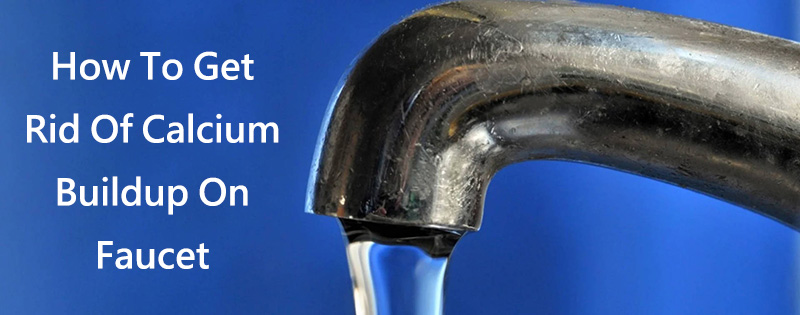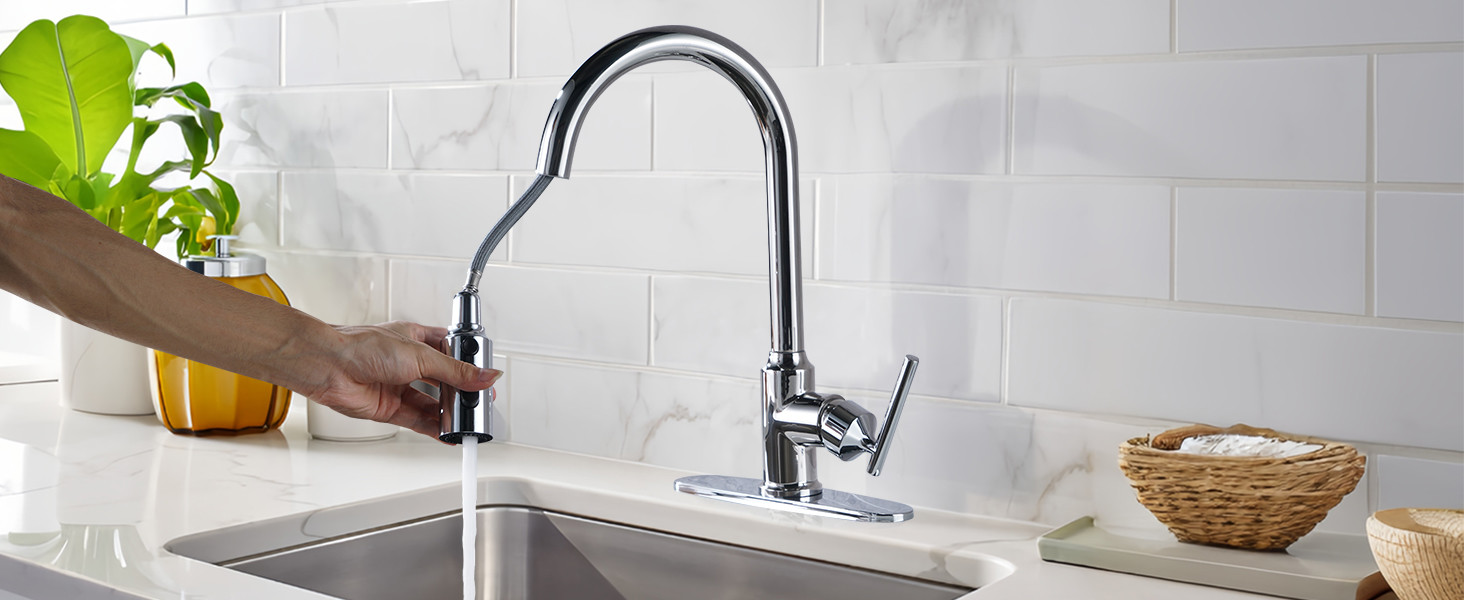How To Get Rid Of Calcium Buildup On Faucet

Calcium buildup, also known as limescale, comes from water with calcium ions, which is called as hard water. If your water is hard, you will notice a lot of white calcium buildup or limescale in the faucet outlet over time. Calcium buildup of dirt or limescale is harmless, but it looks nasty. To remove calcium buildup/scale from faucets, you just need to follow several steps. In this post, we will share with you some tricks of how to get rid of calcium buildup on faucet without further ado.
What causes calcium buildup on faucets
Calcium buildups form as a result of water containing metal ions (calcium, magnesium). Tap water that contains high concentrations of dissolved calcium and magnesium ions is called hard water. When hard water flows through a plumbing system, it builds up over time, resulting in deposits all over the faucets and pipes. Sediment builds up and can cause all kinds of problems with pipes and faucets.
How to get rid of calcium buildup on faucet
The easiest way to remove calcium buildup from your faucet is to use white vinegar. The principle is also very simple: the main component of calcium accumulation is carbonate. Carbonate and acetic acid react chemically, releasing carbon dioxide and clarifying the limewater. Here are some of the items you’ll need to clear calcium buildup from your faucet.
- White vinegar
- Paper towels or rags
- Plastic bag
- Rubber band
- Sponge
- Gloves
Detailed steps to achieve clean faucet
1. Soak paper towels: First, soak a paper towel or soft cloth strip in white vinegar. Wrap vinegar around all areas of the faucet damaged by the buildup, then secure them with rubber bands as needed. Let the faucet soak in the vinegar for half an hour.
2. Wipe away residue: After the vinegar has had time, wipe the problem area clean with a damp sponge or cloth.
3. Dry the faucet: Finally, dry the faucet thoroughly.
4. Finally, you will find the calcium buildups have been removed from the faucet. If there are calcium buildups left, it is likely that the time of faucet soak in the vinegar is too short. You need to repeat the steps above.
How to prevent calcium buildups on faucets
The best way to prevent calcium buildup in your home is to install a water softener. Water softeners filter water through salt and ion exchange resins that specifically address calcium and magnesium in water. Water softeners do require regular maintenance, but they can protect the rest of your home from hard water.
If there are other contaminants in the water, such as iron, a water filtration system is required. There are many different types of water filtration systems, but essentially, they filter out a variety of additional contaminants such as iron, fluoride, chloride, bacteria, and more. Water filtration systems are more expensive to install but require less maintenance. A water quality test is your first step in determining the right solution for your water problem.
Tips to remove and prevent calcium building on faucets
In most cases, white vinegar can take care of mineral buildup on the faucet. If it doesn’t work, you can try chemical cleaners designed for calcium, lime, and rust. It is worth noting that when you use these chemical cleaners, please wear rubber gloves to protect your hands, and try to avoid breathing irritating fumes. At the same time, you should also consider the material of the faucet to avoid damage to the faucet caused by chemical cleaners. If there is really no way to remove the ore buildup, you can choose to replace the faucet. WOWOWFaucet offers various kinds of bathroom faucets and kitchen faucets, you can a suitable one for your famlily obsolutely!
 WOWOW Faucets
WOWOW Faucets





您好!Please sign in